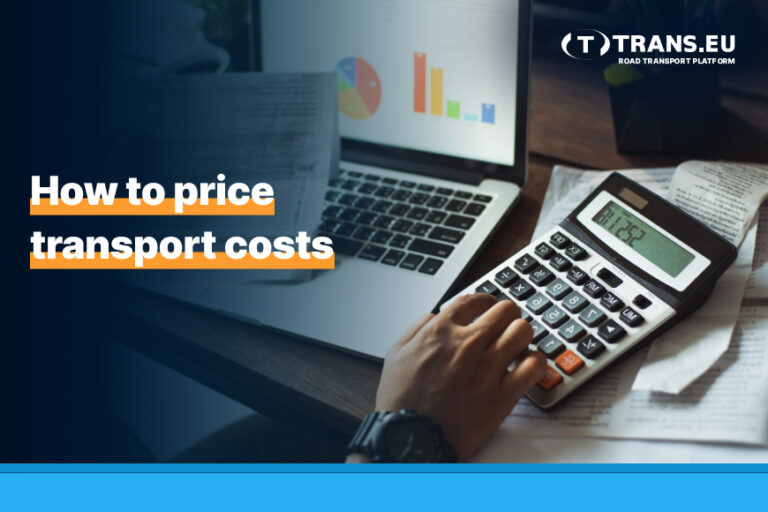Transport costs – what they consist of
The costs can be divided in many ways. One of the simplest ones is to differentiate between:
✅ Expenses directly related to the transport performed:
- 👉 fuel;
- 👉 vehicle depreciation (e.g., a certain life span of the clutch, or suspension parts);
- 👉 tolls (including paid crossings over bridges and passes), ferry crossings;
- 👉 liability, comprehensive and additional vehicle insurance (e.g. Assistance package);
- 👉 carrier’s liability insurance;
- 👉 driver’s remuneration;
- 👉 per diems, business trips, lump sums;
- 👉 consumables (e.g. oil, windshield washer fluid, AdBlue);
- 👉 tires;
- 👉 environmental fees;
- 👉 costs related to factors affecting the time of service delivery, e.g. congestion.
✅ Business-related expenses (fixed costs):
- 👉 maintenance of the office and transport base: rent, lease/tax on the occupied area, salaries of office/base staff, Internet, telephone, and utility fees;
- 👉 vehicle and semi-trailer financing (most often leasing) and fleet renewal costs;
- 👉 insurance and taxes;
- 👉 additional costs (exchange rate differences, damages, fines, factoring or debt collection costs).
It is worth noting that as much as 60-75% of costs are related to drivers’ salaries, consumption of fuel, oil and lubricants, and depreciation of transport equipment. However, only by taking into account all potential expenses allows for a reliable financial calculation and proper determination of the rate of the service offered.
It should also be emphasized that even if two companies are interested in taking the same order, the cost of its execution may differ, for example, due to the number of vehicles. In a large transport company, the costs are spread over more routes. In turn, when the economy fluctuates, the advantage may be gained by stopping part of the fleet (the wheels do not have to turn all the time).
What factors affect transport costs
Other aspects that affect the total cost of transport are:
- ✅ distance of transport;
- ✅ size and type of a load;
- ✅ type of route taken and the restrictions and fees associated with it;
- ✅ duration of the transport operation and the time limits of the service provided;
- ✅ economic situation and the sudden price changes associated with it.
How to properly price freight?
Are you a Trans.eu Platform user? Do not be surprised by tolls and traffic restrictions. Plan the best possible route and calculate your fuel cost with the Best Route Assistant!
[graphic]
- Read also: How to reduce transport costs
Where to look for offers?
The best ways to get orders are:
- 👉 Accepting offers on the freight exchange,
- 👉 Cooperation with forwarders,
- 👉 Signing a permanent contract with a shipper.
The optimal solution is to diversify freight sources, i.e. to accept orders in different ways. On the other hand, the greatest flexibility, access to hundreds of thousands of offers and the possibility of building lasting relationships with shippers and forwarders is provided by the freight exchange.
Take orders tailored to your needs!





